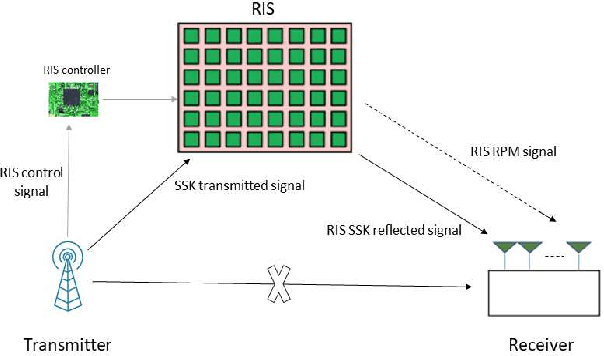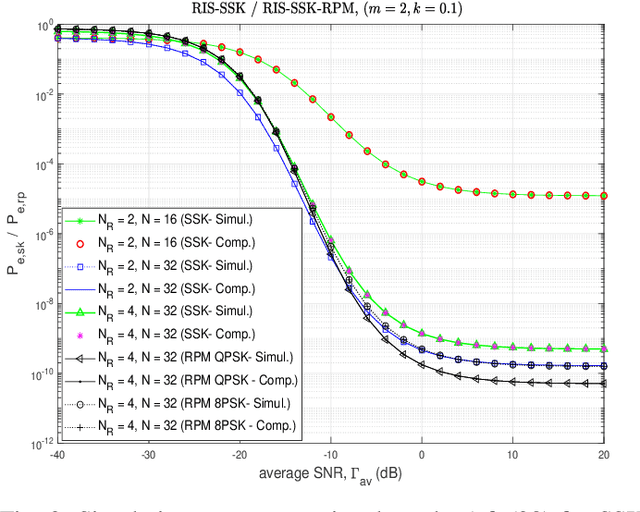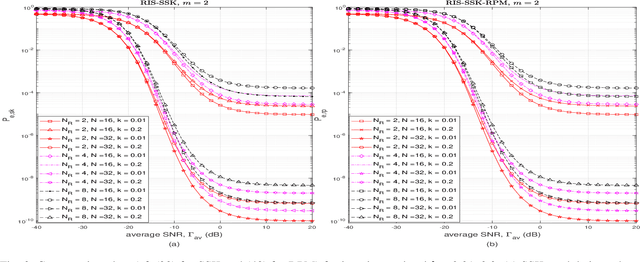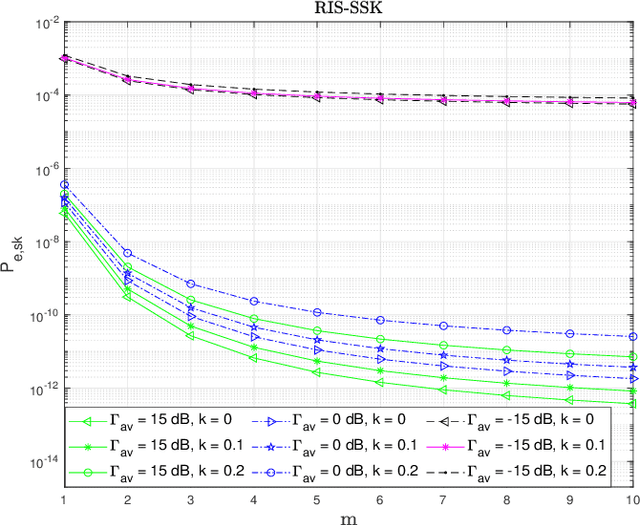RIS-Assisted Space Shift Keying with Non-Ideal Transceivers and Greedy Detection
Paper and Code
Nov 07, 2024



Reconfigurable intelligent surfaces (RIS) and index modulation (IM) represent key technologies for enabling reliable wireless communication with high energy efficiency. However, to fully take advantage of these technologies in practical deployments, comprehending the impact of the non-ideal nature of the underlying transceivers is paramount. In this context, this paper introduces two RIS-assisted IM communication models, in which the RIS is part of the transmitter and space-shift keying (SSK) is employed for IM, and assesses their performance in the presence of hardware impairments. In the first model, the RIS acts as a passive reflector only, reflecting the oncoming SSK modulated signal intelligently towards the desired receive diversity branch/antenna. The second model employs RIS as a transmitter, employing M-ary phase-shift keying for reflection phase modulation (RPM), and as a reflector for the incoming SSK modulated signal. Considering transmissions subjected to Nakagami-m fading, and a greedy detection rule at the receiver, the performance of both the system configurations is evaluated. Specifically, the pairwise probability of erroneous index detection and the probability of erroneous index detection are adopted as performance metrics, and their closed-form expressions are derived for the RIS-assisted SSK and RIS-assisted SSK-RPM system models. Monte-Carlo simulation studies are carried out to verify the analytical framework, and numerical results are presented to study the dependency of the error performance on the system parameters. The findings highlight the effect of hardware impairment on the performance of the communication system under study.
 Add to Chrome
Add to Chrome Add to Firefox
Add to Firefox Add to Edge
Add to Edge